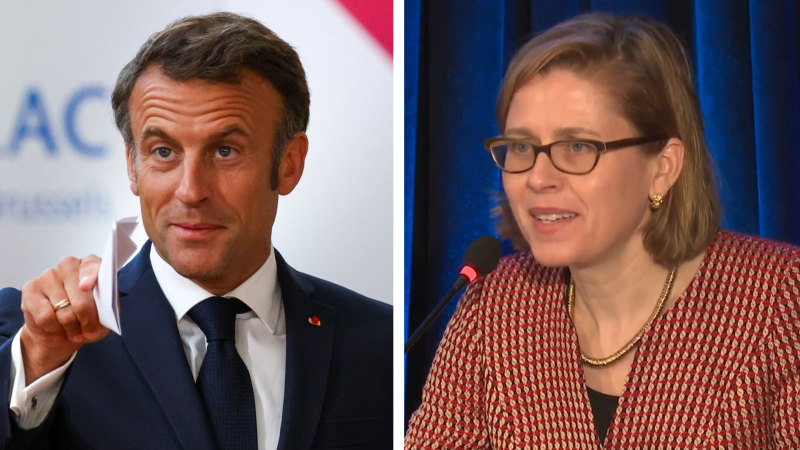Save articles for later
Add articles to your saved list and come back to them any time.
Brussels/London: One of the United States’ leading competition economists has been forced to quit a top job inside the European Commission following complaints by French President Emmanuel Macron over her American nationality.
Professor Fiona Scott Morton was announced last week as the next chief economist of the EU’s Directorate General for Competition in Brussels which regulates big tech companies. She was one of just 11 candidates to apply for the job.
Fiona Scott Morton: “I have determined that the best course of action is for me to withdraw.”Credit: Kaiser Permanente Institute for Health Policy via Wikimedia Commons
Lauded by her peers in the US as an “intellectual leader” in the fields of industrial organisation, competition economics and antitrust policy, the Yale University professor was backed by 39 international competition experts and economists who said in an open letter that Europe was lucky to have lured someone of her calibre.
But her appointment sparked a backlash in France, one of the EU’s two most powerful member states alongside Germany.
The French president said on Tuesday it was inconsistent with the goal of “strategic autonomy” – a policy he has advocated aimed at distancing Brussels from Washington.
“Strategic autonomy [also means] you need to have autonomy of thought,” Macron said. “This is not necessarily the most coherent decision in this respect.
“I would be open to seeing the USA recruit a European into the White House to be at the heart of White House decision, or the Chinese doing the same. I note, moreover, that the law would have prevented them from doing so.”
Less than 18 hours later, Scott Morton quit.
French President Emmanuel Macron opposed Scott Morton’s appointment to a European Commission job because she is American.Credit: Bloomberg
“Given the political controversy that has arisen because of the selection of a non-European to fill this position, and the importance that the Directorate General has the full backing of the European Union it enforces, I have determined that the best course of action is for me to withdraw and not take up the Chief Economist position,” she said in a letter published by the Commission Vice-President Margrethe Vestager.
There are several hundred non-EU citizens working in the Commission, although most have dual nationality. While Scott Morton’s appointment did not breach EU rules, it was unconventional at such a senior level, but Vestager said she was hired “on the merits” and not “on her passport.”
European Commission Vice President Margrethe Vestager.Credit: Reuters
Scott Morton would have reported to the powerful French Director-General, Oliver Guersent and been one of 1000 employees working to enforce the EU’s competition laws in the Directorate-General for Competition.
Theresa Fallon, a Brussels-based academic at the Centre for Russia Europe Asia Studies, said the French had betrayed its insecurity.
“It is a provincial type of paranoia, that there is an American spy hiding under each bed,” Fallon told this masthead.
“It should come as no surprise that a well-respected professor from Yale University decided to turn down this job because it would be a misery to work in Brussels with this level of unprofessionalism, nationalism, and anti-American sentiment.
“I suspect that as long as the next hire holds an EU passport, no one will pay attention to this topic again.
“It is a sign of their insecurity in certain countries, but not all of Europe thinks this way.”
‘Wouldn’t be tolerated in the UK’
Ryan Hopkins, a former political adviser to the Conservative government who backed Remain in the 2016 Brexit referendum, said it was unsettling behaviour from across the Channel.
“The real controversy here is that a perfectly qualified person has been forced to pull out of a role she’s clearly very suited for,” he said.
“Dismissing someone based on their nationality would rightly not be tolerated in the UK and many EU member states, so it’s shocking that it’s accepted within the Commission.
“Even those see the value of the EU will be unsettled by such displays of protectionism and favouritism.”
The European Commission was contacted for comment.
Get a note directly from our foreign correspondents on what’s making headlines around the world. Sign up for the weekly What in the World newsletter here.
Most Viewed in World
From our partners
Source: Read Full Article




